- Wenxi Zhu
- Posted on
- Chonburi, Thailand


Chonburi, Thailand, 14-16 October 2025
Representatives from ten Member States and regional partners convened in Chonburi, Thailand, to advance the implementation of the Regional Action Framework for Marine Spatial Planning (2025–2030). The workshop strengthened cooperation, knowledge sharing, and capacity development toward sustainable ocean management and a sustainable blue economy in the Western Pacific.
“The Western Pacific is densely populated, rapidly developing, and highly vulnerable. It is never too much to emphasize the importance of marine spatial planning as an effective tool or process to balance rising demands for marine or maritime spaces with the need to preserve ocean ecosystems,” underscored participants at the Second WESTPAC Workshop on Marine Spatial Planning (MSP) , held in one of the six MSP Demonstration Sites established under the UN Decade Action 21-Accelerating Marine Spatial Planning in the Western Pacific.
Hosted by the Department of Marine and Coastal Resources (DMCR), Thailand, the workshop was organized by the IOC Sub-Commission for the Western Pacific (WESTPAC), in collaboration with a wide range of partners, with the aim of advancing the implementation of the Regional Action Framework for Marine Spatial Planning (2025-2030).
Around 60 MSP experts and representatives from national marine spatial planning authorities, technical support institutions, universities, and foundations across 10 Member States in the region joined the three-day workshop, together with partners from the MSPglobal initiative, the GEF/UNEP/UNOPS South China Sea SAP project, the Pacific Islands Development Forum, WWF, and Swedish Agency for Marine and Water Management.
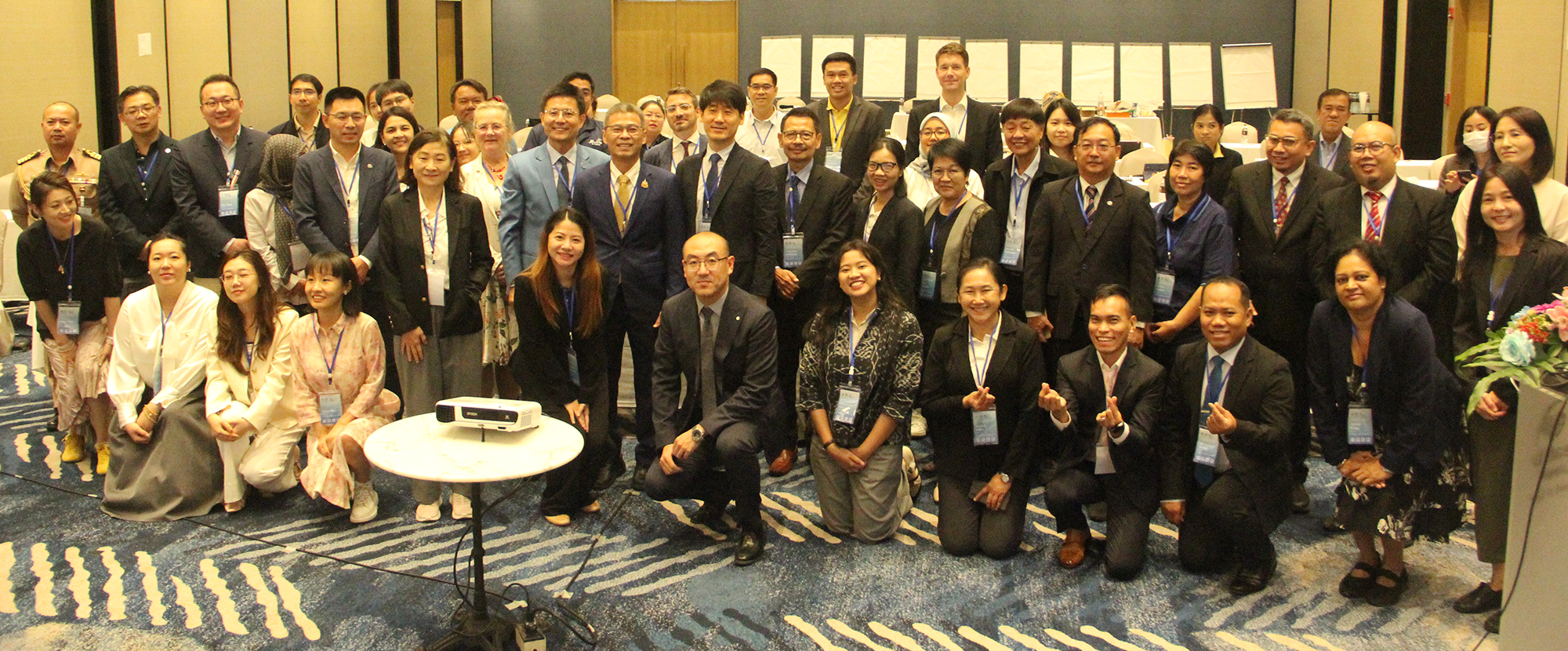
The three-day workshop featured a keynote speech, five plenary sessions, and four-group discussions focusing on charting the way forward. A field visit to the Laem Chabang Port, located within the UN 21 Demonstration Site-Chonburi Province, Thailand, took place gaining first-hand insights into the role of MSP to support ecosystem conservation and blue economy development in Thailand.
Delivering the keynote speech, Suharyanto Suharyanto, Principal Expert of the Ministry of Marine Affairs and Fisheries, Indonesia, shared his more than two decades of experience in developing marine spatial planning in Indonesia. He highlighted the MSP’s vital role in fostering collaboration among sectors, stakeholder groups, and countries towards a sustainable blue economy.
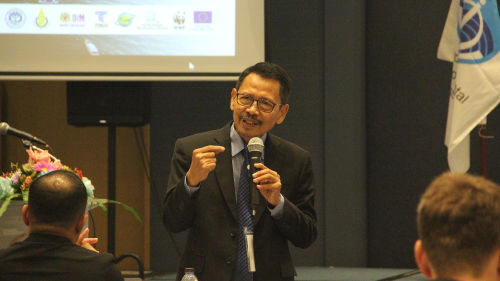
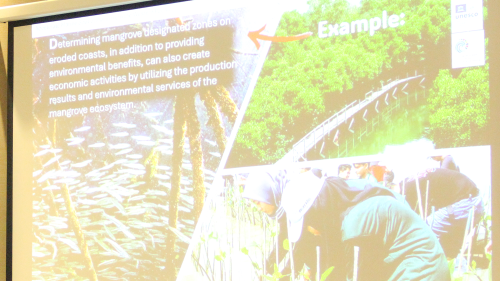
Plenary sessions showcased Member States’ national progress and highlighted achievements of UN Decade Action 21 since its inception in April 2022. Discussions emphasized capacity development, practice sharing, and lessons learned from six MSP demonstration sites in Cambodia, China, Indonesia, the Republic of Korea, and Thailand, each reflecting diverse ecological and socio-economic contexts.
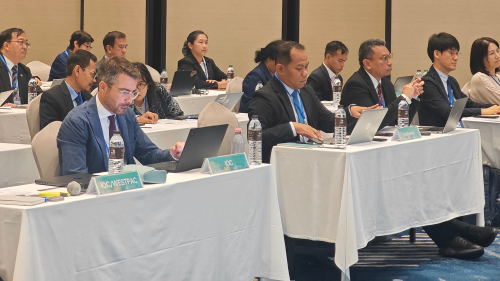
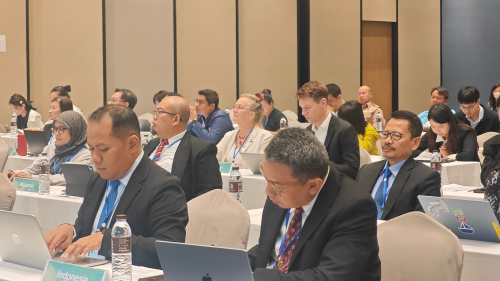
The workshop also witnessed the support of partners and donor agencies provided to assist in implementation of the Regional Action Framework. Two special technical sessions showcased the MSP toolkit development, and the MSPglobal Rapid Assessment Methodology, as well as upcoming series of online and in-person MSP-related trainings planned in the next phase of the MSPglobal Initiative, all of which the UN Decade Action 21 both benefits from and contributes to.
Action-Oriented Deliberations and Forward Planning
Following two days of plenary exchanges, participants convened in group discussion deliberating on actionable potential initiatives/activities in the four Areas of Action: 1) knowledge support, 2) capacity development, awareness, and engagement, 3) demonstration, good practices, and 4) Innovative financing and funding opportunities.
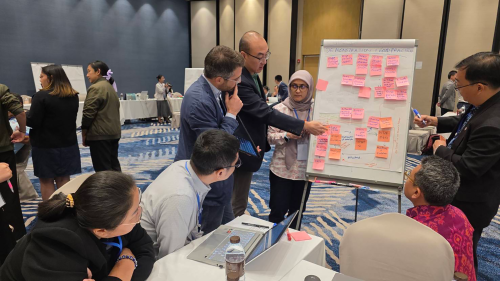
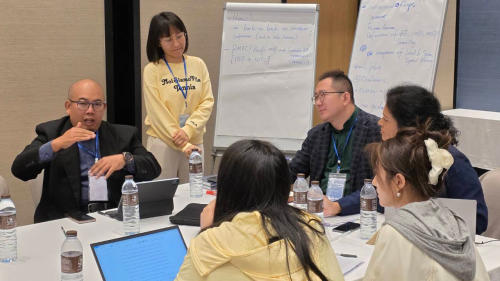
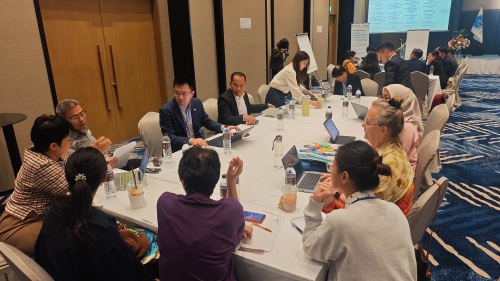
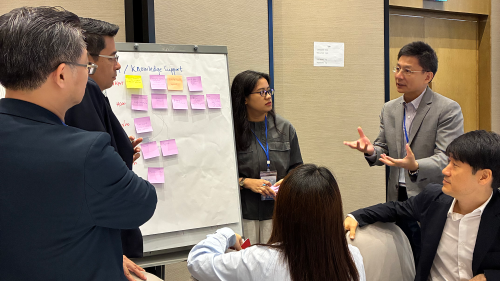
The highly interactive discussions generated tangible proposals and practical arrangements for the implementation of the Regional Action Framework over the next two years and beyond.
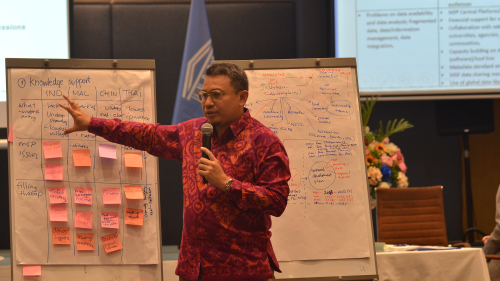
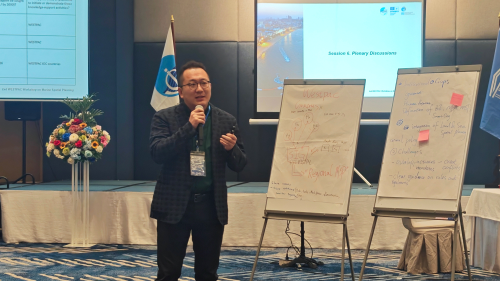
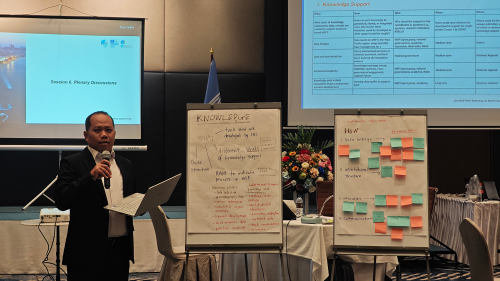
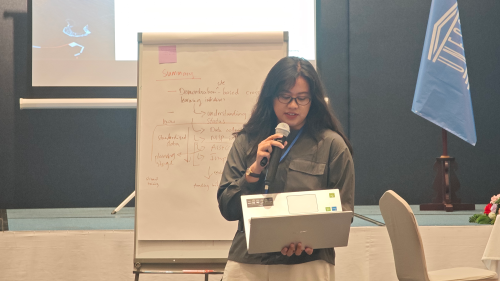
A Task Force was formed to jointly develop an MSP Data Tool Guide encompassing MSP data categories, collection, processing, integration and visualization. Priority actions were also identified to develop MSP promotional materials, and to strengthen tailored trainings and assessments, especially in areas such as cumulative impact assessment, land-sea interaction, and climate smart, biodiversity inclusive MSP.
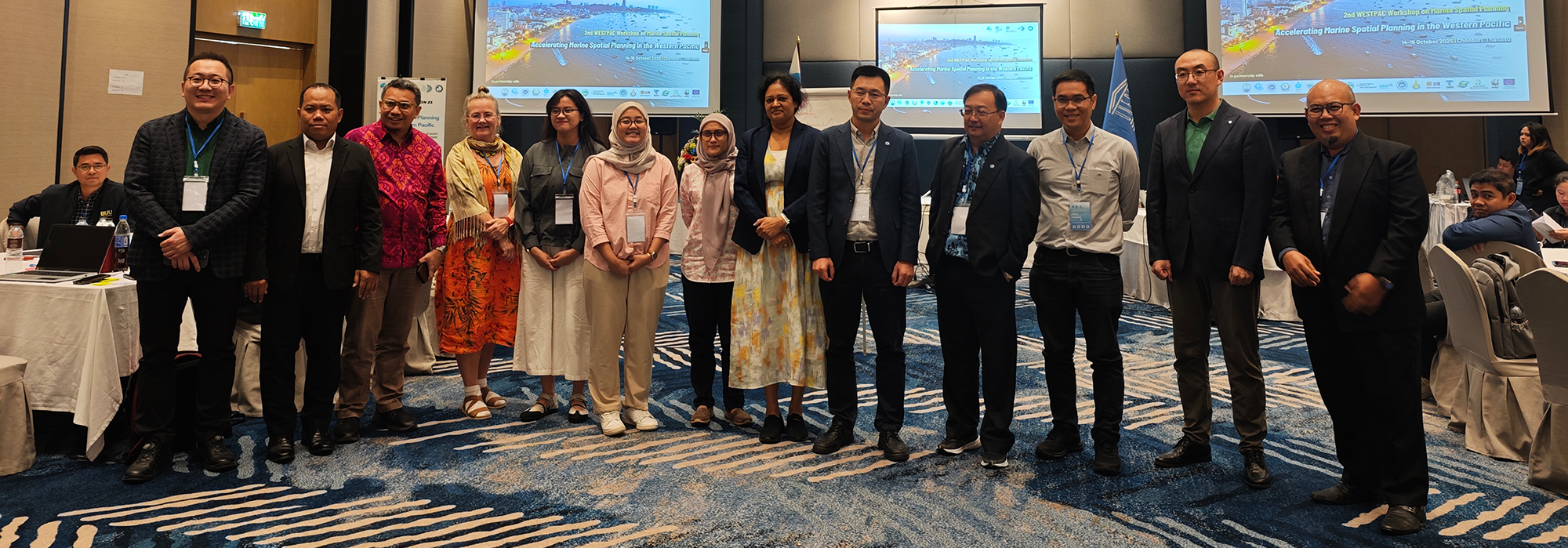
Participants further decided to launch a periodic MSP Outlook to document status, track progress, and foster practice sharing from the UN 21 demonstration sites- expanded from six to twelve as a result of this workshop.
Advancing the Ocean Decade Vision in the Region
This workshop marked the second regional MSP event convened by IOC-WESTPAC since 2022, serving as a major mechanism to promote MSP as a key instrument for sustainable ocean management under the UN Decade of Ocean Science for Sustainable Development (2021–2030).
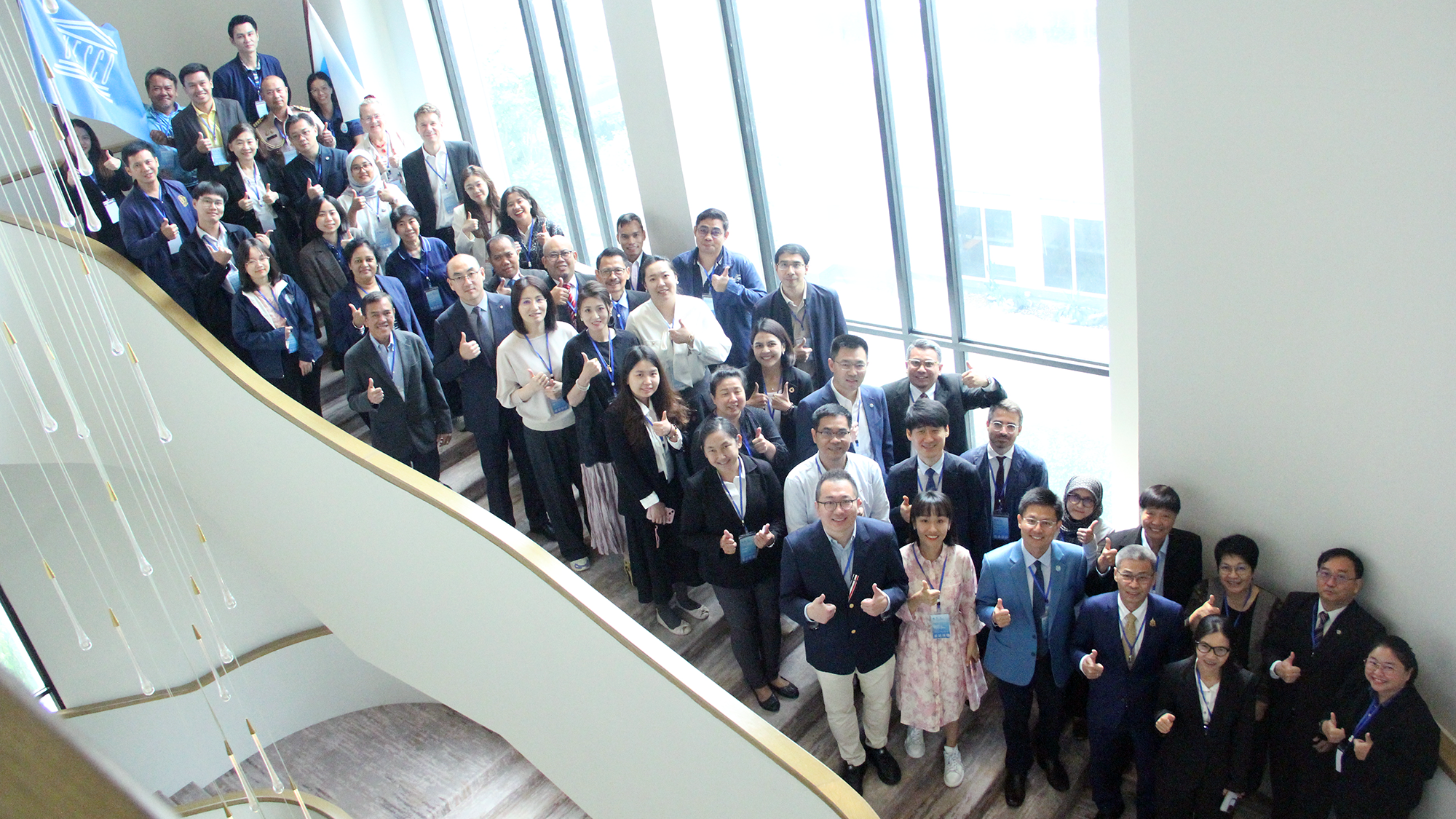
The workshop outcomes laid a strong foundation for concerted actions aligned with the Regional Action Framework (2025-2030), and reaffirmed the collective commitment of Member States and partners to advancing sustainable ocean planning and management, and a thriving blue economy in the region.
Related pages

